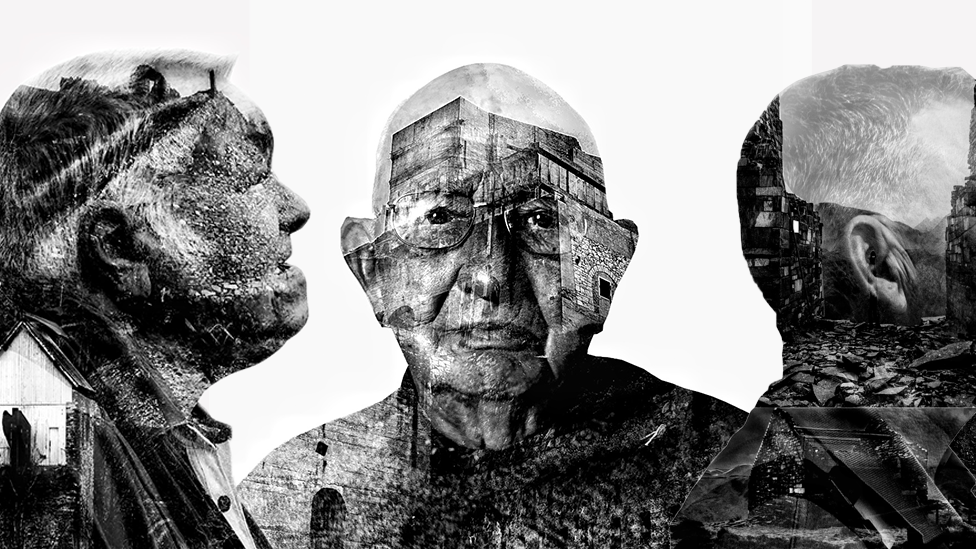Photographing history: The quarrymen of Wales
- Published

The exhibition features Welshmen who spent their working lives in quarries
"It's our responsibility to document history," says Carwyn Rhys Jones. "If I hadn't done this project, these stories would have been lost."
He is talking about his most recent photography exhibition: Chwarelwyr - Quarrymen.
The exhibition consists of five large portraits, each of a Welshman who spent his life working in the quarries of Wales.
What sets them apart from traditional portraits is the use of double exposure, where the image is layered on top of another, which in this case are landscape images.
"When I started this project it was about the natural landscape," Mr Jones said, "and how industrialisation has changed that landscape."
"And then I thought: 'Well, these [quarries] wouldn't exist without the people'.
"I had a few family members that were quarrymen, but when I was younger I didn't appreciate what they had achieved.
"But now, every time I visit a quarry, it feels like you're walking through history, because you realise what these men achieved on a grand scale without the machinery or the health and safety [we have today]."
Carwyn Rhys Jones's exhibition has gone on display in the Slate Valley Museum in Granville, New York
Mr Jones interviewed each of the men beforehand, to learn more about their lives in the quarries.
Two of the men have since died - something which Mr Jones said made the capture of their faces, and the stories within them, all the more important.
"We do need to document what's going on, and our culture, because it's important for the next generation to be inspired by that."
First shown in the National Slate Museum in Llanberis, the exhibition has gone on to Swansea, Pembrokeshire, the Railway Museum in Gwynedd, and is now on display in New York.
It will stay there for six months before moving on to Vermont, and Mr Jones hopes he can eventually take the images on to Pennsylvania.
"I know that's a big area where the Welsh immigrated to, but anything from New York is a bonus, so we'll see how it goes."
- Published11 January 2023
- Published8 November 2022
- Published22 November 2020